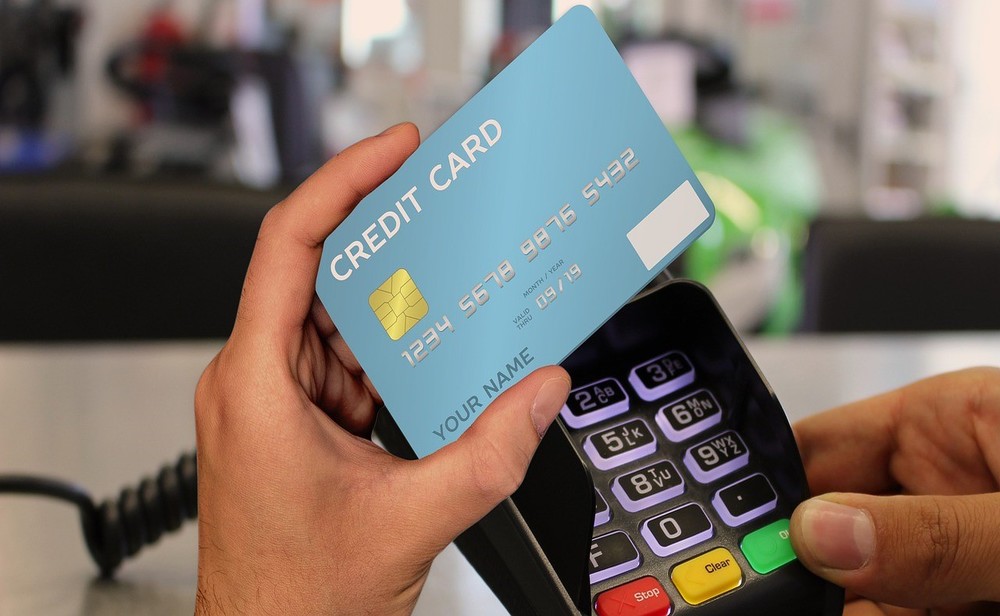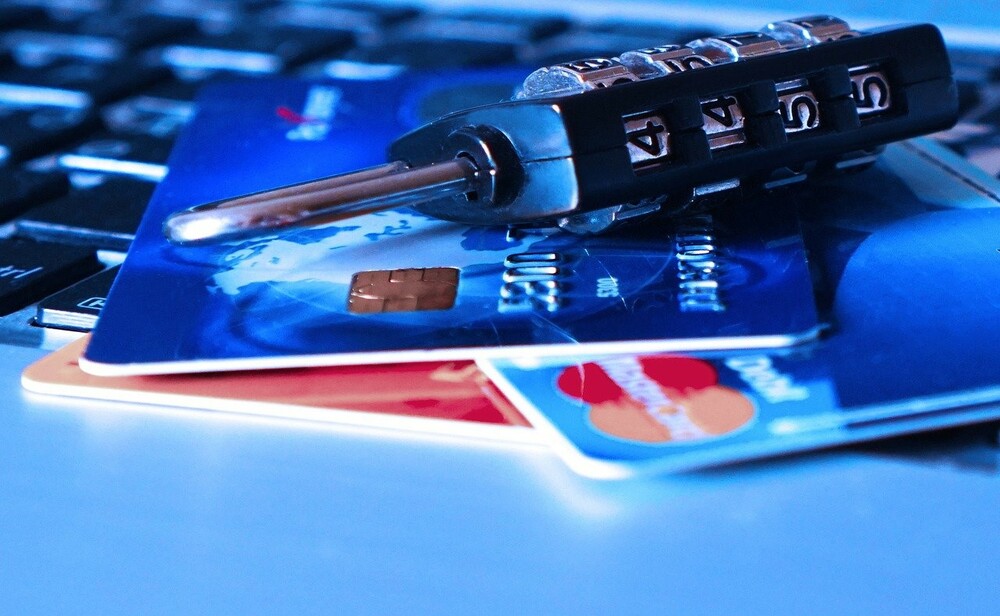10 Steps To Managing Your Personal Finances
The past year has been really challenging. In addition to dealing with travel limitations, lockdown orders, and worries of becoming ill, many of us have struggled financially. In fact, research indicates that financial stress is at an all-time high in the United States, a condition that can be attributed to the widespread hiring freezes and layoffs caused by the epidemic.

Financial stress may be induced by a variety of factors, including debt, unanticipated costs, and the temptation to make unaffordable purchases. Without the proper coping mechanisms or support, it might feel hard to endure. However, it’s conceivable.
Remember two things if you are under financial stress:
- You are not alone, and there are several people and services available to assist you.
- There are tried-and-true methods for regaining control of your finances.
Budget, budget, budget
The best method to get your finances in order is to create and adhere to a thorough, realistic budget. This may seem apparent, but for many people, the experience of financial stress creates a vicious cycle: you avoid thinking about money because it’s a difficult topic, which increases your debt, which produces more stress, and so on.
The key to making a good budget is to avoid setting unreasonable objectives for how much you will save and earn in addition to your regular money. Instead, utilize your budget to track and define your finances with precision. Knowing how much money you have, spend, and can save is the first step in achieving true financial independence.
To begin, create a spreadsheet document (you can use Google Sheets or Microsoft Excel). Under the leftmost column, list your monthly costs. Such things could include:
- Savings (always remember to pay yourself first!)
- Mortgage/rent
- Car payment
- Car insurance
- Medical insurance
- Taxes
- Student loans
- Groceries, food, and other essentials
- Gasoline
- Internet
- Phone
- Fun
Then, on the right, enter the amount you spend on each and the due date of the payments as a reminder. Verify that your expenses do not exceed your income by summing the amount at the bottom. Consider whether there are places where you might spend more or less money.
Establish a backup fund
Start developing an emergency fund to meet unforeseen expenditures as a second excellent strategy for reducing financial stress. If you are battling with debt and do not earn enough to save, accumulating a large fund may seem impossible. However, setting away $50 every month will rapidly result in a substantial nest egg. To begin things off, you should also consider selling clothing, books, and other goods you haven’t used in years.
You should strive to have at least $1,000 in your emergency fund until you are debt-free. Once you are able to save a bit more, you should aim to have three to six months’ money of living costs in your emergency fund (use the budget you made above to calculate this).
There are several ways in which an emergency fund may and possibly will reduce your stress. It will offer you the psychological assurance necessary to maintain your composure in the most difficult conditions. You will have the funds necessary to cover any unforeseen expenses, such as a money repair or a last-minute vacation to see family. As a consequence, you will avoid incurring further debt and will be able to avoid options such as borrowing money or incurring credit card charges you cannot pay off.
Be true to yourself
After establishing a budget and an emergency fund, it is time to confront the harsh realities. If you’re experiencing financial stress, you’re likely in debt, which indicates that (a) you’re spending more than you make or (b) you’re suffering other difficulties, such as supporting family members or other people in your life.
The good news is that it is currently easier to make an additional income than it was in the past, partly thanks to the rise of online freelance jobs. Freelancers in the United States earn an average of $50 per hour, so taking on a few more hours of work each week is an efficient strategy for many people to earn more money and reduce their debt. (Websites such as Upwork and Guru provide chances for people in a variety of disciplines.)
However, in short to medium term, it will be easier to modify your expenditure than your income. To reduce things, it is necessary to refrain from making impulsive purchases and forego expensive nights out with friends. However, it also requires making some less obvious decisions.
One of these is shifting to a less expensive apartment. This may sound extreme, but for most people, rent is by far their largest monthly expense, comprising about 30 percent of their monthly expenditures. If you can afford the significant, one-time expense of a relocation, you can be guaranteed that living in a cheaper space for six months will save you thousands of dollars, not just in rent but also in reduced interest payments on your debt.
Apply the same method to other large monthly costs, such as researching more cheap health insurance alternatives or automobiles with lower monthly payments.
Ask for help
The most painful aspect of financial stress for many people is the guilt and humiliation it brings. In a society as materialistic as ours, it might be tough to acknowledge that you are not immensely wealthy, much less than you are fighting to balance your daily finances.
Overcoming this fear is crucial for escaping debt and easing stress. There are several services that can assist you in regaining control, ranging from financial planning and credit counseling to debt management services. Even websites (such as Kiplinger and Bankrate) whose primary purpose is to help you invest money provide free advice on how to lower your debt and balance your budget.
It is worth your time to investigate these services in-depth. In addition to the professional assistance and support they can give, the benefit of utilizing them is that you relieve the strain on your friends and family. While you should always be open and honest with your loved ones about your finances, the anonymity of a professional counselor alleviates some of the pressure you may feel to solve the situation on your own.
Monitor your progression
Finally, we return full circle to the initial technique. Throughout the steps outlined in this article, you should be analyzing your budget and revising it to reflect your real finances. As you begin to pay off your debt and your financial stress diminishes, it is imperative that you monitor your progress.
Rather than sitting in ambiguity, knowing how much money you have will minimize your stress and help you develop a more positive connection with money in general. You may even give yourself an incentive as a reward for your hard effort. For example, you may spend $20 on a bottle of wine or lunch for every $200 you save.
When I began my work in financial planning seven years ago, I rapidly realized that financially successful people were those that budgeted, managed, and planned their finances on a regular time. In other words, they had the self-control to obtain financial education and continue their education throughout their lives.
Almost no one obtains a financial education as a child, despite the fact that it is one of the most important components of financial success. If you’re new to personal finance or simply seeking to increase your financial knowledge, here are my personal five simple steps to help you establish a solid financial foundation:
Establish weekly money dates
According to a study by business theorist Thomas Stanley, millionaires spend 8.4 hours a month on average managing and planning their finances. While many people desire to become billionaires, the majority do not invest the required time and effort to make it happen. So don’t make that mistake.
Instead, schedule a weekly money date on your calendar and devote at least one hour every week to your finances. During your money date, you should update your budget, review any future costs, pay your bills (although you should automate these as much as possible), review the correctness of your accounts, and address any other pressing financial problems. Make your money dates as delightful as possible — listen to music, dance, light candles, or do anything else that you find enjoyable. The more enjoyable something is, the more likely you are to continue doing it, and consistency is what matters.
Devote 20 minutes each week to personal finance reading
Do not attempt to learn everything at once regarding personal finance. Instead, divide your financial education into manageable portions. Read about personal finance subjects for 20 minutes every week (either as part of or in addition to your money date). Choose one topic every week and read about it until you have a firm grasp on it before moving on to something new. I Will Teach You to Be Rich by Ramit Sethi, On My Own Two Feet by Manisha Thakor, and Soldier of Finance by Jeff Rose are all excellent starting points.
Talk to people you admire
Apply what you are learning about personal finance themes such as spending, saving, credit, debt, investing, and retirement plans by discussing them with people you respect. I frequently see that there is a great deal of financial discussion, yet the majority of what your friends and relatives know about money is incorrect.
Instead, consult mentors and other entrepreneurs who have achieved financial success. Inquire about their accomplishments and disappointments. Like in business, I’ve discovered that I can prevent many financial missteps by studying the errors of others. Also, keep in mind that discussing money is still a sensitive topic for many people, so start simple and work your way up to more in-depth discussions. Respect what others share with you, and constantly express gratitude for their people.
Apply techniques to your own life for testing
Most entrepreneurs recognize that testing is the greatest approach to determine whether a company concept will be successful. The same principle applies to your own finances. I always remind my customers that certain financial methods work better for certain people than others. Take budgeting, for example. There are a multitude of methods and tools available to assist you in budgeting your monthly income and spending, but you won’t know which one works best for you unless you try them. I accomplished this in my own life. I tried other budgeting strategies before concluding that the Excel spreadsheet I created for myself is the most effective. To reach this conclusion, though, I had to explore a number of different avenues. Until you try something, you cannot determine whether it is suitable for you.
Hire an accredited financial planner
Everyone requires professional assistance from time to time at the end of the day. You should hire hiring a CFP if you:
- Have limited or no financial planning experience.
- You have no desire to do everything on your own.
- Desire an objective and impartial opinion
- Have a difficult financial condition
- You lack time to do everything on your own.
No of where you are on your financial path, perseverance, and commitment to ongoing financial education is essential. True mastery of any topic requires consistent practice, training, and skill-honing. Ensure that you continue to commit time and effort to your personal finances for the rest of your life.





